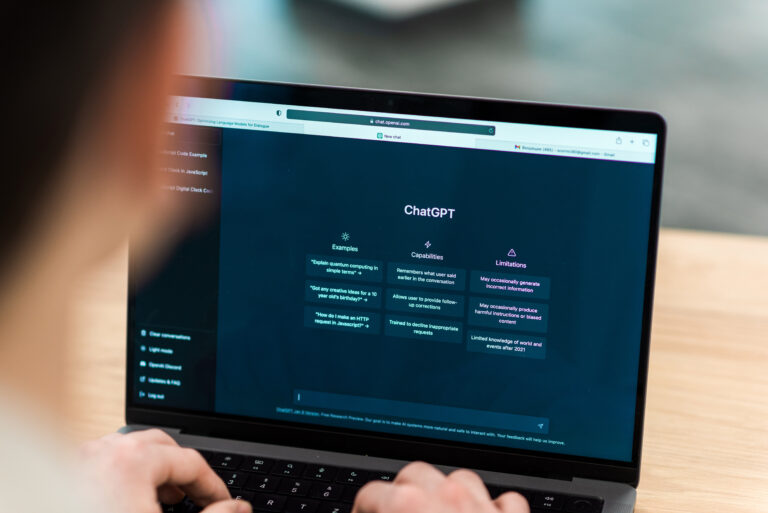What Does Blog Stand For? (and Why You Need One)
Blogs have become an integral part of the internet, with millions of people around the world setting up their own blogs to share ideas and connect with others.
But what exactly does the term “blog” mean and where did blogs originate from?
A blog is a website that contains dated entries in reverse chronological order about a particular topic.
The word “blog” is derived from “weblog”, which was coined in the late 1990s to describe the emerging practice of people keeping online diaries and journals.
The “log” part referred to logging daily events and updates, while “web” indicated it was on the World Wide Web.
The earliest blogs were manually updated and maintained by individuals, but over time blogging software emerged which automated publishing and allowed multimedia content.
This made launching and managing blogs much easier for the average person. Blogging steadily gained popularity in the early 2000s until it exploded into the mainstream.
In this article, we will explore the meaning behind the term “blog” and provide a step-by-step guide to setting up your own blog using Bluehost, one of the most popular web hosting services for blogs.
What Does Blog Stand For?
The word “blog” is a shortened version of “weblog”, which was coined in 1997 by Jorn Barger, an early internet user and writer. The term “weblog” was used to describe a log or journal published on the World Wide Web.
As blogging grew in popularity in the late 1990s, the term “weblog” was eventually shortened to the catchier word “blog”.
The use of “blog” in mainstream media is often credited to Peter Merholz, who broke the word “weblog” into the phrase “we blog” in the sidebar of his blog Peterme.com in April or May of 1999.
The term “blog” quickly caught on as bloggers adopted the shorthand to describe their online journals, diaries, and personal websites.
By the early 2000s, “blog” had become a popular term to characterize the web-based publishing format we know today.
Types of Blogs
There are many different types and categories of blogs that cater to all kinds of interests. Here are some of the most popular types of blogs:
- Personal Blogs – Personal blog topics often include lifestyle, health, relationships, parenting, food, travel, and more. Many people start blogs as an online journal or diary.
- Business Blogs – Companies and organizations use blogs for marketing, public relations, and communication. Business blogs help build brand awareness, establish expertise, promote services, and connect with customers.
- Professional Blogs – Professionals like lawyers, doctors, consultants, and academics use blogs to share knowledge. These blogs provide value-driven content that highlights professional expertise.
- Niche/Topic Blogs – Blogs can focus on almost any hobby, interest, or niche topic imaginable. There are popular blogs on photography, food, movies, video games, music, books, technology, and more.
- How-to/Educational Blogs – These blogs provide tutorials, guides, tips, and how-to content on all kinds of topics and skills. They are helpful resources for readers looking to learn something new.
There are endless possibilities for blog types and niches. When creating a blog, think about your interests and expertise to decide what category suits you best. The type of blog dictates the topic, voice, and kinds of content you create.
What are the benefits of blogging?
Blogging provides many benefits that make it a popular online activity. It has, without a doubt, changed my life. I’m going to share some reasons why you should start a blog!
Here are some of the key advantages of starting a blog:
1. Connect with Your Audience
One of the best parts of blogging is being able to directly engage with your readers.
You can interact with your audience and build a community who are ACTUALLY interested in what you’re sharing!
This helps create loyalty and gives readers a reason to come back to your blog again and again.
2. Establish Yourself as an Expert
Blogging enables you to share your knowledge and expertise with the world.
As you create high-quality content focused on your niche, you establish credibility and authority.
Readers will come to see you as a trusted source of information on your topic. This can lead to speaking engagements, consulting opportunities, or selling your own products and services.
3. Make Money from Your Blog
One of the best opportunities from blogging is making money from your blog!
For those looking to earn income online, blogging can be a great way to monetize your knowledge and passion.
You can make money through running ads on your blog, affiliate marketing, offering consulting services, creating online courses, writing sponsored content, and more.
While it takes time to build traffic, blogging provides great flexibility and earning potential.
Want to learn how to make a money-making blog in under an hour? Check out my step-by-step guide!
4. Express Your Creativity
Blogging gives you an outlet to share your ideas, perspectives, and creativity with others.
The blog format allows you to communicate in your unique voice.
You can experiment with different types of content like tutorials, commentary, video, audio, interviews, and more.
Blogging enables you to tap into your creative side in a public way.
In summary, blogging can help you build an audience, establish expertise, make money, or creatively express yourself online.
How To Start Your Own Blog
Now that you understand what does blog stand for, it’s time to start your own blog!
When deciding how to create your new blog, you have several options to consider for a blogging platform like WordPress, Blogger, Squarespace, or Wix.
If you want to make money blogging, you will have to use a self-hosted blog. With a self-hosted blog, you can have your own blog domain (for example: .com or .net).
But a free hosted blog will not allow you that freedom to have your own domain.
PS. A self-hosted blog will only cost you $2.95/month, which totals to only $35.40 a year!
The one that I have been using for years to host my blog is Bluehost. Through Bluehost, I’ve been able to make money blogging!
Bluehost is one of the largest web hosting providers specialized in hosting WordPress.
Reasons to choose Bluehost for your WordPress blog include:
- WordPress optimized hosting configurations and auto-installers available.
- Free domain registration included.
- Unmetered bandwidth and generous storage space.
- Automatic WordPress updates and backups.
- 24/7 customer support.
- Very affordable pricing plans.
Steps to create your own blog
Signing up for Bluehost is easy and only takes a few minutes. Here is a step-by-step process:
- Go to Bluehost.com and click on the “Get Started Now” button. This will take you to the pricing and plan page.

2. Select the plan you want. For a basic blog, the Basic shared hosting plan for $2.95/month is a good option.
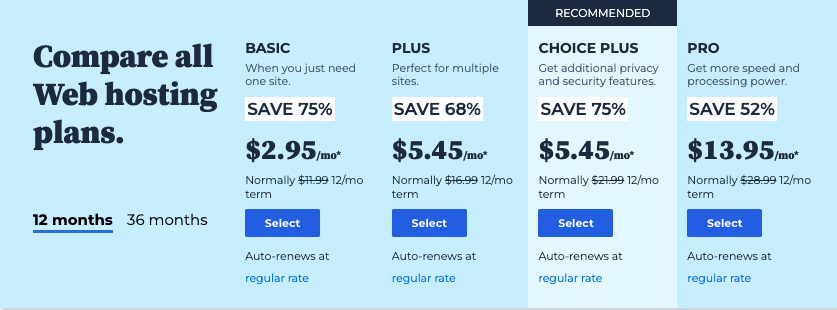
3. Enter your domain name or you can decide on your domain later.
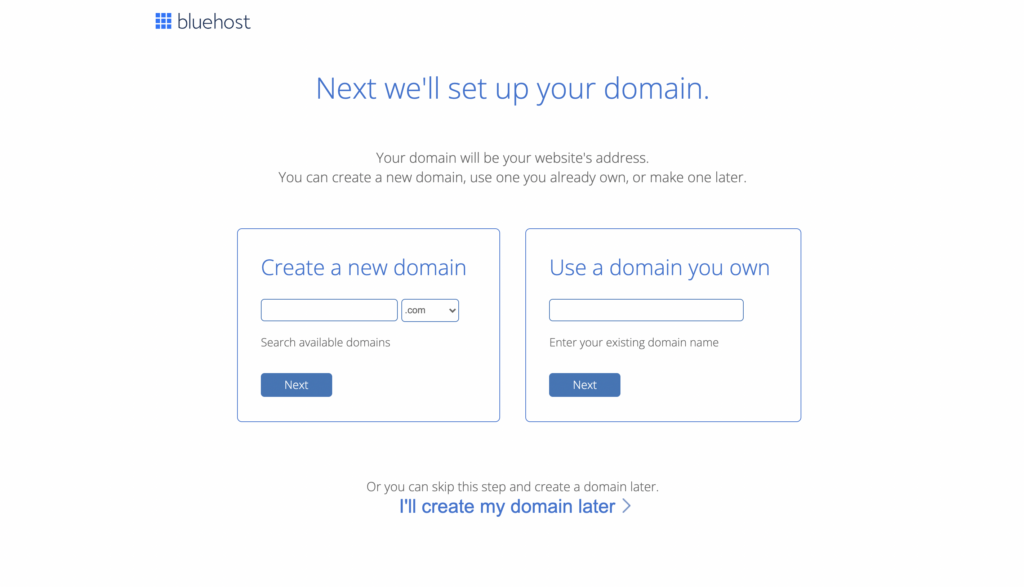
4. Enter your account information and click “Next”. This includes your domain name, email, password etc.
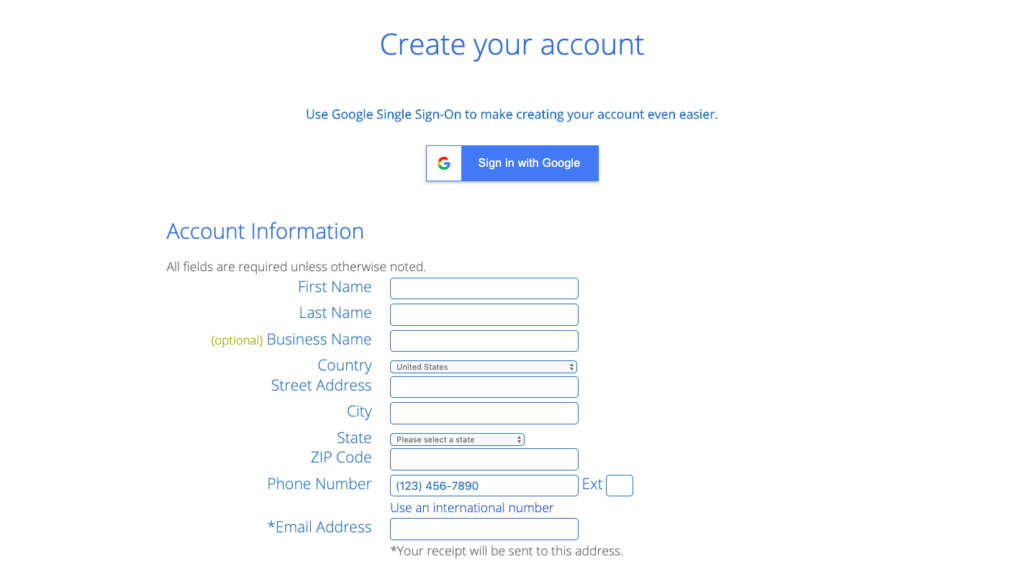
5. Select your package and enter payment information. I personally wouldn’t choose any package extras. You can always add later!
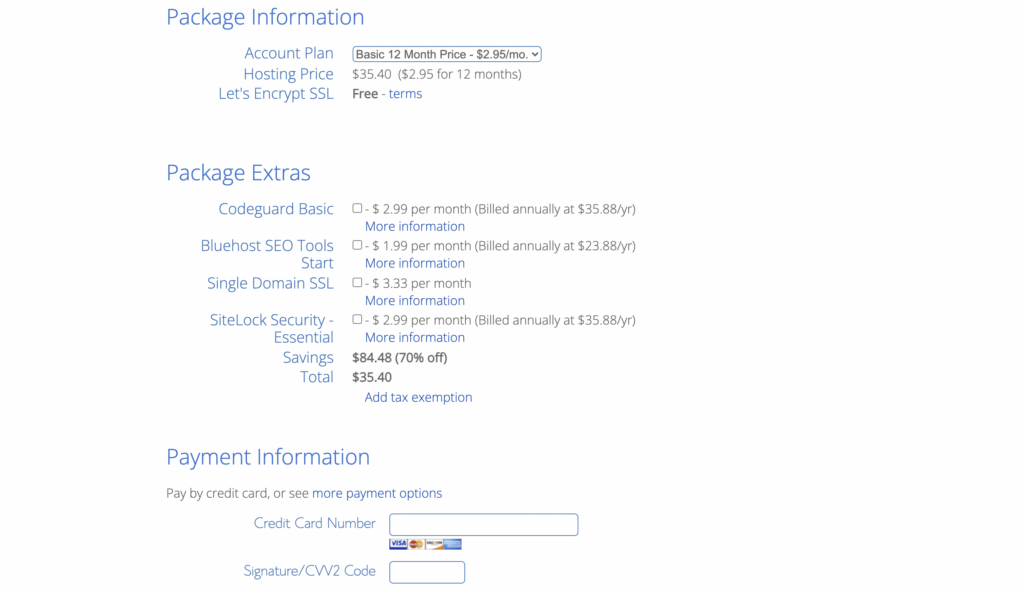
Yay! You crossed the finish line and just finished the first chapter of your blogging journey: getting a domain name and web host!
I’m so happy for you and am excited to see you start your blogging journey.
What to expect next:
- Verify your account via email. Bluehost will send you an email to the address you provided. Click on the link in the email to verify your account.
- Login to your Bluehost account. Use the login name and password you created during sign up.
- Congratulations, your Bluehost account is now active! You can now install WordPress and create your blog.
Within a few minutes you can have your Bluehost account created and ready to install WordPress! 🙂
Want to learn how to start a blog and make money blogging? Check out my step-by-step guide on how to start your blog in less than an hour!





